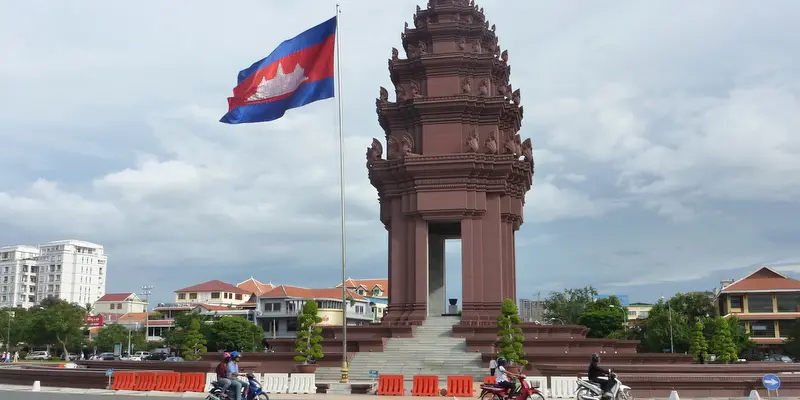
Cambodian election makes a mockery of democracy, regional lawmakers warn
July 22, 2018

JAKARTA – ASEAN Parliamentarians for Human Rights (APHR) today warned that Cambodia’s parliamentary election on 29 July will be neither free nor fair, as the vote will take place in a highly repressive political environment while the only viable opposition force – the Cambodia National Rescue Party (CNRP) – has been banned from taking part.
The network of regional lawmakers urged the international community to not lend the sham vote an ill-deserved veneer of legitimacy by sending observers or other forms of election aid.
“What happens on Sunday in Cambodia will not be a democratic election in any sense. Over the past year, Prime Minister Hun Sen’s government has led a systematic crackdown on all forms of dissent, dismantled the opposition and independent media, and moved the country towards one-party rule,” said APHR Chairperson Charles Santiago, a member of the Malaysian Parliament.
“The dissolution of the CNRP means that millions of Cambodians will be denied a genuine choice at the polls this week. This is a farcical ritual to rubber stamp Hun Sen’s grip on power.”
The CNRP was dissolved on 16 November 2017 through a decision of the highly politicized Supreme Court, when 118 of its senior members were also banned from politics for five years. The Supreme Court relied on repressive new amendments to the Law on Political Parties, which had been rushed through the National Assembly earlier in the year and give authorities sweeping powers to dissolve political parties or ban its leaders without due process.
The ruling came amidst a wider crackdown on opposition voices, civil society, and independent media, including the arrest and detention of CNRP leader Kem Sokha just weeks before.
The months leading up to the vote have been marked by further repressive tactics by Cambodian authorities in order to pressure people into voting. In Mondulkiri province, indigenous people have been threatened with having public services cut unless they vote for the ruling Cambodian People’s Party (CPP), while in some factories garment workers have been told to vote or “face consequences”.
At the same time, authorities and the judiciary have harassed and threatened legal action against those calling for an election boycott, including the exiled opposition leader Sam Rainsy and a “Clean Fingers Campaign” urging people not to vote on Facebook.
“The dissolution of the CNRP is a clear case of rule by law, not of law. The Law on Political Parties was specifically designed to undermine democracy, not uphold it, and has therefore served the purpose intended by Hun Sen and the CPP,” said Charles Santiago.
Some 160,000 election observers will reportedly be deployed across Cambodia on voting day, but these are largely drawn from groups with already established links to the CPP. While many international actors – including the United States and the European Union – have refused to send observers, other countries – including China and Myanmar – have reportedly agreed to do so.
“Hun Sen and his allies are engaged in a desperate bid to lend the elections a veneer of legitimacy by ensuring a respectable turnout and a presence of observers. The international community should not be fooled by this charade – countless brave people inside Cambodia are putting their safety and liberty at risk by merely exercising their democratic right not to vote,” said Charles Santiago.
“Those states that are legitimizing this sham election, whether inadvertently or not, should rethink its engagement with Cambodia and send a clear signal that undermining democracy will not be tolerated.”
Regional lawmakers further warned that the elections in Cambodia could have consequences across the region, in particular with crucial votes in Thailand and Indonesia approaching over the next year.
“The dismantling of democracy could set a dangerous precedent for Southeast Asia as a whole, where authoritarian rulers sadly often look to each other for inspiration. The ease with which Hun Sen has co-opted state institutions and grabbed power for his own party must not become a blueprint for the region,” said Charles Santiago.
“ASEAN countries must remain vigilant and continue to raise human rights issues in Cambodia even after the vote.”
Click here to read this statement in Khmer, Bahasa, and Thai.
សូមចុចទីនេះ ដើម្បីអានសេចក្តីថ្លែងការណ៍ជាភាសាខ្មែរ
Klik di sini untuk membaca pernyataan ini dalam Bahasa Indonesia
ASEAN Parliamentarians for Human Rights (APHR) was founded in June 2013 with the objective of promoting democracy and human rights across Southeast Asia. Our founding members include many of the region's most progressive Members of Parliament (MPs), with a proven track record of human rights advocacy work.